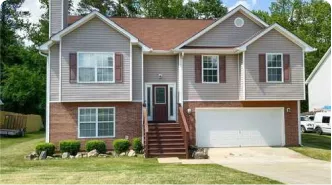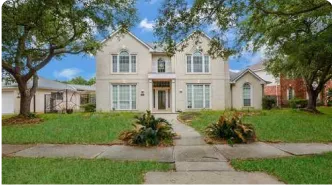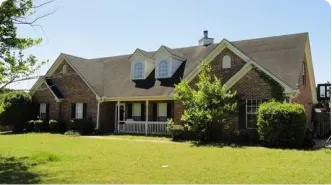Airbnb arbitrage is one of the easiest ways to make money from real estate in 2025—without owning a single property. You lease a place long-term, then re-rent it short-term on platforms like Airbnb or Vrbo. Thanks to the rise of remote work, flexible travel habits, and sky-high home prices, more people are turning to this strategy to generate income with less upfront cost.
It's a smart workaround in today's market, especially if you’re not ready to commit to buying property. In this guide, we’ll walk through exactly how Airbnb arbitrage works, how to get started, the tools you'll need, the legal stuff to watch for, and where the top U.S. markets are right now. Let’s break it all down.
What is Airbnb Rental Arbitrage in 2025?
Airbnb rental arbitrage is a simple but powerful concept: you rent a property from a landlord, then re-rent it short-term on platforms like Airbnb, keeping the profit after paying rent and expenses. In 2025, it’s become a popular way to run a rental business without the heavy upfront cost of buying real estate.
Unlike traditional investing—where you’d purchase a home, finance it, and take on long-term ownership—arbitrage skips all that. You don’t need a mortgage, a down payment, or a real estate agent. And unlike being a full-time Airbnb host who rents out a home they own, you’re basically running the show from the middle: not the owner, but not just a guest either.
It’s a creative, lower-risk entry into the short-term rental world—and for many, a fast track into real estate income.
How the Business Model Works
At its core, Airbnb arbitrage is all about making more from short-term stays than you pay in long-term rent. You earn money by renting a property from a landlord, then listing it on Airbnb or similar platforms. The profit comes from the difference between your Airbnb income—calculated as average daily rate (ADR) × occupancy rate—and your total expenses.
Startup costs usually include your first month’s rent, security deposit, furniture, basic supplies, and any permits required. After that, monthly expenses include rent, utilities, cleaning, restocking, and platform fees.
To stay profitable, pricing strategy is key. You can’t just set one rate and forget it. Tools like Airbnb’s Smart Pricing or third-party platforms help you adjust your nightly rates dynamically based on demand, seasonality, and local events. Done right, this strategy keeps your calendar booked and your earnings healthy.
Is Airbnb Arbitrage Legal in 2025?
Short answer: yes—but it depends on where you are and how you go about it.
In 2025, short-term rental (STR) regulations have tightened in many U.S. cities. Some markets are cracking down on non-owner-occupied rentals, requiring hosts to get permits, follow zoning laws, or even limit how many nights a year a place can be rented. That’s why your first move should always be checking local short-term rental laws and regulations—before signing anything.
Next, your lease has to allow subletting. Many landlords still ban it outright, so getting written permission is key. And if the rental’s part of an HOA or condo board? You’ll need to review their rules too—many now have strict anti-Airbnb clauses.
Bottom line: Airbnb arbitrage is still legal in many places, but in 2025, doing your homework is no longer optional—it’s essential.
Step-by-Step Guide to Starting Airbnb Arbitrage in 2025
1. Assess Your Budget
Before jumping in, get clear on how much you’re actually working with. Think beyond just first and last month’s rent—you’ll also need to budget for furnishing, initial supplies, cleaning services, and possibly city permits. If your savings are tight, look into short-term rental–friendly financing. Some companies now offer loans specifically for startup costs like furniture or even STR business credit lines.
2. Choose the Right Market
Location is everything in Airbnb arbitrage. You want a city where short-term rental income (your nightly rate times occupancy) far exceeds the long-term rent you’ll be paying. Use tools like AirDNA, Awning, or Mashvisor to compare average daily rates, occupancy trends, and local demand. Bonus points if you already live nearby or know the area well.
3. Check Short-Term Rental Laws
This part is non-negotiable. Every city has its own rules—some welcome short-term rentals, others ban them outright. Make sure your chosen market allows non-owner-occupied rentals and doesn't limit how often you can rent. Local government websites usually have up-to-date info, or you can call city planning offices directly.
4. Find the Right Long-Term Rental
Once you've picked your market, it’s time to hunt for the perfect property. Look on platforms like Zillow, Rent.com, or even local Facebook groups. You want something centrally located, in good condition, and ideally furnished—or at least easy to furnish. Properties with in-unit laundry, good Wi-Fi, and a dedicated parking spot tend to do better on Airbnb.
5. Negotiate Lease Terms
Not all landlords are on board with subletting, so transparency is key. Approach them professionally, explain your plans, and offer to sign a lease addendum that allows short-term rentals. You might even offer slightly above asking rent or handle minor maintenance in exchange for flexibility. Get everything in writing.
6. Furnish the Property
Your guests won’t care that you don’t own the place—they’ll care that it feels clean, cozy, and complete. If you’re on a budget, mix and match Facebook Marketplace finds with a few quality Amazon or IKEA staples. If you want a turnkey setup, companies like Awning offer STR-specific furnishing packages that can take care of everything.
7. Get Required Licenses & Permits
Most cities require you to register as a short-term rental operator and get a business license or permit. This can cost anywhere from $50 to several hundred dollars depending on the location. Start this process early—it can take a few days or even weeks to get approved.
8. List on Airbnb
Once your space is ready, it’s time to go live. Take well-lit, high-resolution photos, write a clear and welcoming description, and list every amenity you offer. Turn on Airbnb’s Smart Pricing to help you stay competitive, and enable Instant Book to make the reservation process smoother for guests.
9. Decide on Property Management
Finally, you’ll need to figure out who’s running the show. If you’re local and have the time, you can manage the place yourself. But if you’re remote or want to scale faster, services like Awning, Hostaway, or Evolve can handle everything from guest communication to cleaning coordination—for a cut of your revenue.
Pros and Cons of Airbnb Arbitrage
Like any side hustle or business model, Airbnb arbitrage has its ups and downs. Here’s a quick look at what you’re getting into:
Pros
- Low startup costs: You don’t need to buy a property—just cover rent, furnishings, and some setup.
- No ownership risk: Skip the mortgage, property taxes, and long-term market worries.
- Flexible and scalable: If it’s working, you can rinse and repeat in other cities or units.
- Quick entry into real estate: It’s a great way to learn the ropes without making a major financial commitment.
Cons
- No property appreciation: Since you’re not the owner, you don’t build equity or benefit from rising values.
- Lease limitations: You’ll need landlord permission, and some leases just won’t allow subletting.
- More wear and tear: Guest turnover is frequent, which means more cleaning and upkeep.
- Legal red tape: Local short-term rental rules can change fast—and kill your setup if you’re not compliant.
Contracts You Need
Before you launch your Airbnb arbitrage business, you’ll want to make sure the paperwork is rock solid. First up is your lease agreement—this needs to explicitly allow short-term subletting. Don’t assume it’s okay just because it’s not mentioned. Add a clause that clearly states you have permission to host on platforms like Airbnb. It protects you and keeps things transparent with your landlord.
Next, create a guest agreement for your renters. This should lay out house rules, check-in/out times, what’s expected during their stay, and any liabilities. It doesn’t need to be complicated—just clear and enforceable.
Not sure where to start? Sites like LawDepot, Rocket Lawyer, or Avail offer templates you can customize. It’s also worth spending a little on a local attorney to review everything—especially if you’re serious about scaling. A few hundred bucks up front can save you thousands later.
Best Tools and Platforms for Airbnb Arbitrage in 2025
Running a profitable Airbnb arbitrage business means being smart with your time—and your tools. Thankfully, there’s a whole ecosystem of platforms that make this strategy smoother, faster, and more hands-off. Here are some of the best in each category:
1. Research & Analytics
Start with the numbers. AirDNA, Awning, and Mashvisor help you find markets where short-term rentals outperform long-term leases. They show average daily rates, occupancy trends, and expected revenue by zip code.
2. Pricing & Revenue
For pricing, automation is key. PriceLabs, Wheelhouse, and Beyond adjust your nightly rates dynamically to match local demand, seasonality, and competition—so you don’t have to guess.
3. Furnishing Services
Need to furnish quickly? Feather, CasaOne, and Awning Furnishing offer rental-friendly furniture bundles that are stylish, affordable, and delivered fast.
4. Insurance & Legal
Short-term rentals come with risks. Proper Insurance, Slice, Superhog, and Awning provide STR-specific coverage, guest screening, and liability protection—so you’re not left exposed if something goes sideways.
5. Automation & Operations
Managing multiple listings? Tools like Hospitable, Guesty, Hostaway, and Turno handle guest messaging, cleanings, reviews, and task assignments automatically.
6. Financial Management
Track income and expenses like a pro. Stessa and QuickBooks for Hosts make it easy to manage your cash flow, categorize spending, and prep for tax season.
Looking for a fully hands-off experience?
Awning doesn’t just help you analyze markets and furnish units—they also offer full-service vacation rental property management. From dynamic pricing and guest communication to maintenance coordination and revenue optimization, Awning’s expert team handles it all so you can focus on scaling.
Expert Tips for Success
Want to set your Airbnb arbitrage business up for long-term success? Keep these practical tips in mind:
- Build great relationships with landlords: Be honest about your intentions and show that you’ll take care of the property. Trust goes a long way.
- Know your local laws: Don’t assume you can start listing right away—research city rules, permits, and HOA restrictions before you launch.
- Automate wherever you can: Use tools for pricing, guest messaging, calendar syncing, and cleaning coordination to save time and avoid burnout.
- Don’t overspend on furniture: Guests care more about cleanliness and comfort than designer décor. Stick to durable, budget-friendly pieces.
- Focus on collecting guest reviews: Provide a great experience and kindly ask for feedback—it helps boost your visibility and credibility.
- List on multiple platforms: Don’t rely solely on Airbnb. Platforms like Vrbo and Booking.com can help fill your calendar.
- Plan for peak seasons: Adjust pricing and availability ahead of time to take advantage of high-demand travel periods.
Top 10 US Airbnb Arbitrage Markets in 2025
These 10 cities stand out in 2025 for high earning potential, favorable occupancy trends, and relatively investor-friendly regulations. Whether you’re just starting out or scaling your short-term rental portfolio, these locations offer a compelling balance between income potential and regulatory stability.
1. Waianae, Hawaii
- Average Daily Rate (ADR): $355
- Occupancy Rate: 72%
- Annual Revenue: $54,867
- STR Regulation Note: Permits required; zoning restrictions apply.
Why it’s great: Waianae is one of Oahu’s most underrated short-term rental gems. It offers a more authentic Hawaiian experience than tourist-heavy Waikiki, attracting travelers looking for peace, beaches, and natural beauty. Because it's outside Honolulu's stricter zones, there's room for legal arbitrage with the proper licensing. The combination of high ADR and stable demand makes it an ideal cash-flow play.
2. Gulf Shores, Alabama
- ADR: $392
- Occupancy Rate: 58%
- Annual Revenue: $49,048
- STR Regulation Note: Registration required; STR-friendly city.
Why it’s great: Gulf Shores is a coastal hotspot that delivers solid returns thanks to its beaches, resorts, and year-round family tourism. It’s known for high-spending vacationers and repeat guests, especially during summer and holiday peaks. Because Alabama has fewer restrictions than coastal California or Florida, this market stays accessible to new investors. Plus, rental rates remain relatively affordable for arbitrage deals.
3. Prairie Village, Kansas
- ADR: $220
- Occupancy Rate: 70%
- Annual Revenue: $33,703
- STR Regulation Note: Generally friendly with landlord approval.
Why it’s great: This Kansas City suburb is growing in popularity thanks to its blend of family-friendly neighborhoods and proximity to downtown. With high occupancy and steady ADR, it offers strong yield without big-city prices. Prairie Village also benefits from consistent demand from business travelers and those visiting family or universities in the area. It's an ideal arbitrage location for operators looking to fly under the radar.
4. Flagstaff, Arizona
- ADR: $269
- Occupancy Rate: 68%
- Annual Revenue: $31,762
- STR Regulation Note: Protected statewide, light local rules.
Why it’s great: Flagstaff is a four-season destination with tourists flocking for skiing, hiking, and its proximity to the Grand Canyon. Unlike Phoenix or Sedona, it offers a balance of affordability and high visitor volume. Statewide legislation still protects short-term rentals here, making it safer for arbitrage operators. Its mountain-town charm and consistent tourism make it a year-round performer.
5. Bellingham, Washington
- ADR: $223
- Occupancy Rate: 62%
- Annual Revenue: $25,926
- STR Regulation Note: License required; supportive environment.
Why it’s great: Tucked between Seattle and Vancouver, Bellingham is a hub for nature lovers, digital nomads, and eco-tourists. It's small but mighty in terms of STR potential, with decent ADRs and a loyal travel base. The university adds to seasonal demand, and automation tools help you manage remotely. It’s a great pick for a medium-tier operator who wants to avoid urban regulatory headaches.
6. Miami, Florida
- ADR: $279
- Occupancy Rate: 52%
- Annual Revenue: $25,268
- STR Regulation Note: Zoning restrictions apply; STR permitted in select areas.
Why it’s great: Miami remains a global hotspot, and despite tighter regulations, certain neighborhoods like Wynwood and Little Havana remain friendly to arbitrage operators. High ADRs and luxury travel demand offset slightly lower occupancy. If you’re willing to do the homework and stay compliant, the revenue potential is strong. It’s ideal for experienced hosts who want to scale into a high-dollar market.
7. West New York, New Jersey
- ADR: $182
- Occupancy Rate: 63%
- Annual Revenue: $20,668
- STR Regulation Note: Landlord approval needed; STRs allowed.
Why it’s great: Just across the river from Manhattan, West New York offers a more affordable base for travelers exploring NYC. Demand is consistent year-round thanks to tourism, business travel, and special events. The cost of entry is lower than New York City itself, and regulations are lighter. It's a savvy arbitrage choice for tapping into the NYC traveler flow without NYC-level stress.
8. Columbia, Missouri
- ADR: $200
- Occupancy Rate: 45%
- Annual Revenue: $15,481
- STR Regulation Note: Registration required; college town with flexible laws.
Why it’s great: Columbia is a classic college town with dependable demand tied to the University of Missouri. While occupancy isn’t as high as vacation destinations, sports weekends, graduations, and academic events keep bookings strong during key periods. Lower housing costs make it easy to turn a profit even with moderate pricing. It’s a solid secondary market for first-timers.
9. Zephyrhills, Florida
- ADR: $124
- Occupancy Rate: 56%
- Annual Revenue: $10,720
- STR Regulation Note: Light restrictions in Pasco County.
Why it’s great: Zephyrhills is known for its relaxed vibe, natural springs, and adventure tourism like skydiving. It’s a low-cost entry point for Airbnb operators who want to target retirees and niche travelers. The ADR is lower, but so are operating costs—ideal for budget-conscious investors. It's not flashy, but it's steady.
10. Brighton Heights, Pennsylvania (Pittsburgh area)
- ADR: $162
- Occupancy Rate: 57%
- Annual Revenue: Estimate only; data limited
- STR Regulation Note: Registration and inspection required in Pittsburgh.
Why it’s great: Brighton Heights offers a quiet, affordable neighborhood within reach of Pittsburgh’s cultural and tech scene. It’s gaining popularity among visitors seeking a suburban feel close to downtown events, universities, and hospitals. The area is ripe for arbitrage due to low rental prices and growing short-term demand. It’s a hidden gem with solid potential.
Takeaway
Airbnb arbitrage offers a practical, lower-risk way to tap into the real estate market—especially in 2025, when flexibility and side income are more valuable than ever. You don’t need to buy property to earn from it, and with the right approach, it can be both profitable and scalable.
That said, success depends on doing your homework: check local laws, understand lease terms, and run the numbers carefully. Don’t skip over the fine print just to get started faster. Begin with one well-researched property, prove the model, and build from there. Stay smart, stay compliant, and grow at a pace that makes sense for you.
.svg)






.webp)







%201.webp)
%203.webp)



%201.webp)
.webp)





